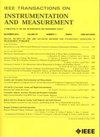Multistrategy Progressive Adaptation for Generalized Open-Set Cross-Working Condition Fault Diagnosis in Rotating Machinery
IF 5.9
2区 工程技术
Q1 ENGINEERING, ELECTRICAL & ELECTRONIC
IEEE Transactions on Instrumentation and Measurement
Pub Date : 2025-09-02
DOI:10.1109/TIM.2025.3604981
引用次数: 0
Abstract
In real-world industrial environments, frequent condition changes, mechanical degradation, and incomplete fault labeling often lead to data distribution shifts and label space asymmetry between the source and target domains. Moreover, compounded by the emergence of previously unseen fault types, severely undermine the generalization capability of conventional intelligent diagnostic methods. Although existing open-set domain adaptation (OSDA) methods attempt to address unknown classes, most still rely on the assumption of full label space consistency, limiting their applicability under complex and uncertain industrial conditions. To overcome these limitations, this article proposes a novel model for generalized open-set cross-working condition fault diagnosis, named multistrategy progressive adaptation network (MSPAN). The model allows for partial class overlap between source and target domains, each containing private classes, thereby reducing reliance on strict label alignment, complete class coverage, and prior knowledge of the target domain. This significantly enhances the model’s adaptability and flexibility under realistic operating conditions. MSPAN integrates three core strategies: centroid-guided expansion (CGE), progressive consensus filtering (PCF), and localized knowledge integration (LKI). CGE expands the label space with pseudo-target domain samples, alleviating interference from private classes in the source domain; PCF combines dual measure-driven ranking and consensus-aware estimation to adaptively filter unknown classes in the target domain; LKI focuses on learning unknown-class representations while enhancing the transferability of general diagnostic knowledge across domains. Extensive experiments on the PU and NLN-ESP public datasets demonstrate that MSPAN achieves both accurate shared-class diagnosis and effective unknown-class separation under varying degrees of class overlap and openness. These results validate its robustness, generalization ability, and practical potential for deployment in complex industrial fault diagnosis scenarios.旋转机械广义开集跨工况故障诊断的多策略渐进自适应
在现实工业环境中,频繁的条件变化、机械退化和不完整的故障标记通常会导致源域和目标域之间的数据分布偏移和标记空间不对称。此外,再加上以前未见过的故障类型的出现,严重破坏了传统智能诊断方法的泛化能力。虽然现有的开放集域自适应(OSDA)方法试图解决未知类,但大多数方法仍然依赖于全标签空间一致性的假设,限制了它们在复杂和不确定的工业条件下的适用性。为了克服这些局限性,本文提出了一种新的广义开集跨工况故障诊断模型——多策略渐进自适应网络(MSPAN)。该模型允许源领域和目标领域之间的部分类重叠,每个领域都包含私有类,从而减少对严格的标签对齐、完整的类覆盖和目标领域的先验知识的依赖。这大大提高了模型在实际工况下的适应性和灵活性。MSPAN集成了三种核心策略:质心引导扩展(CGE)、渐进共识过滤(PCF)和局部知识集成(LKI)。CGE通过伪目标域样本扩展标签空间,减轻源域私有类的干扰;PCF结合双度量驱动排序和共识感知估计自适应过滤目标域中的未知类;LKI侧重于学习未知类表示,同时增强一般诊断知识跨领域的可转移性。在PU和nnn - esp公共数据集上的大量实验表明,在不同程度的类重叠和开放情况下,MSPAN既能实现准确的共享类诊断,又能实现有效的未知类分离。这些结果验证了该方法的鲁棒性、泛化能力以及在复杂工业故障诊断场景中部署的实际潜力。
本文章由计算机程序翻译,如有差异,请以英文原文为准。
求助全文
约1分钟内获得全文
求助全文
来源期刊

IEEE Transactions on Instrumentation and Measurement
工程技术-工程:电子与电气
CiteScore
9.00
自引率
23.20%
发文量
1294
审稿时长
3.9 months
期刊介绍:
Papers are sought that address innovative solutions to the development and use of electrical and electronic instruments and equipment to measure, monitor and/or record physical phenomena for the purpose of advancing measurement science, methods, functionality and applications. The scope of these papers may encompass: (1) theory, methodology, and practice of measurement; (2) design, development and evaluation of instrumentation and measurement systems and components used in generating, acquiring, conditioning and processing signals; (3) analysis, representation, display, and preservation of the information obtained from a set of measurements; and (4) scientific and technical support to establishment and maintenance of technical standards in the field of Instrumentation and Measurement.
 求助内容:
求助内容: 应助结果提醒方式:
应助结果提醒方式:


